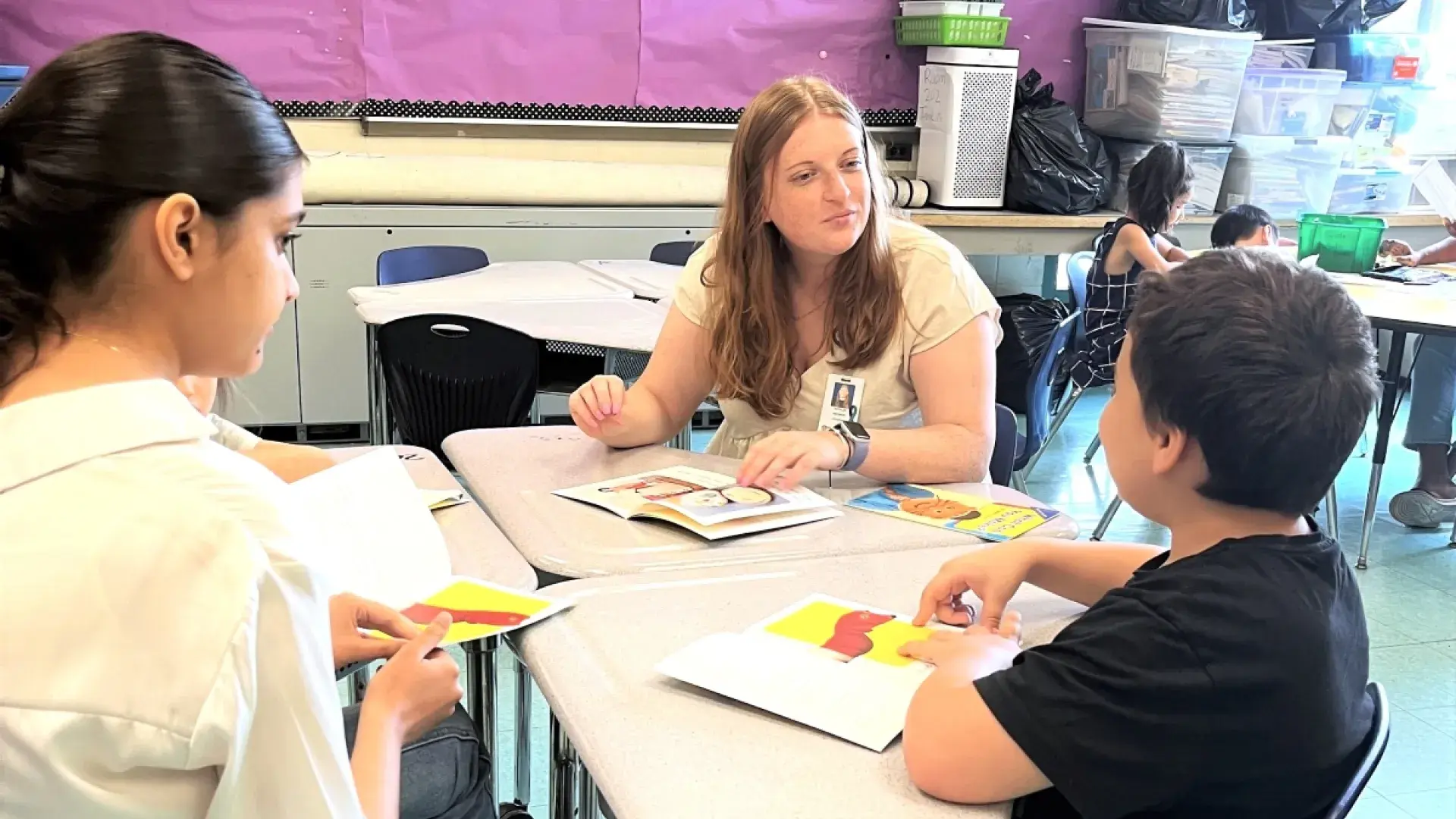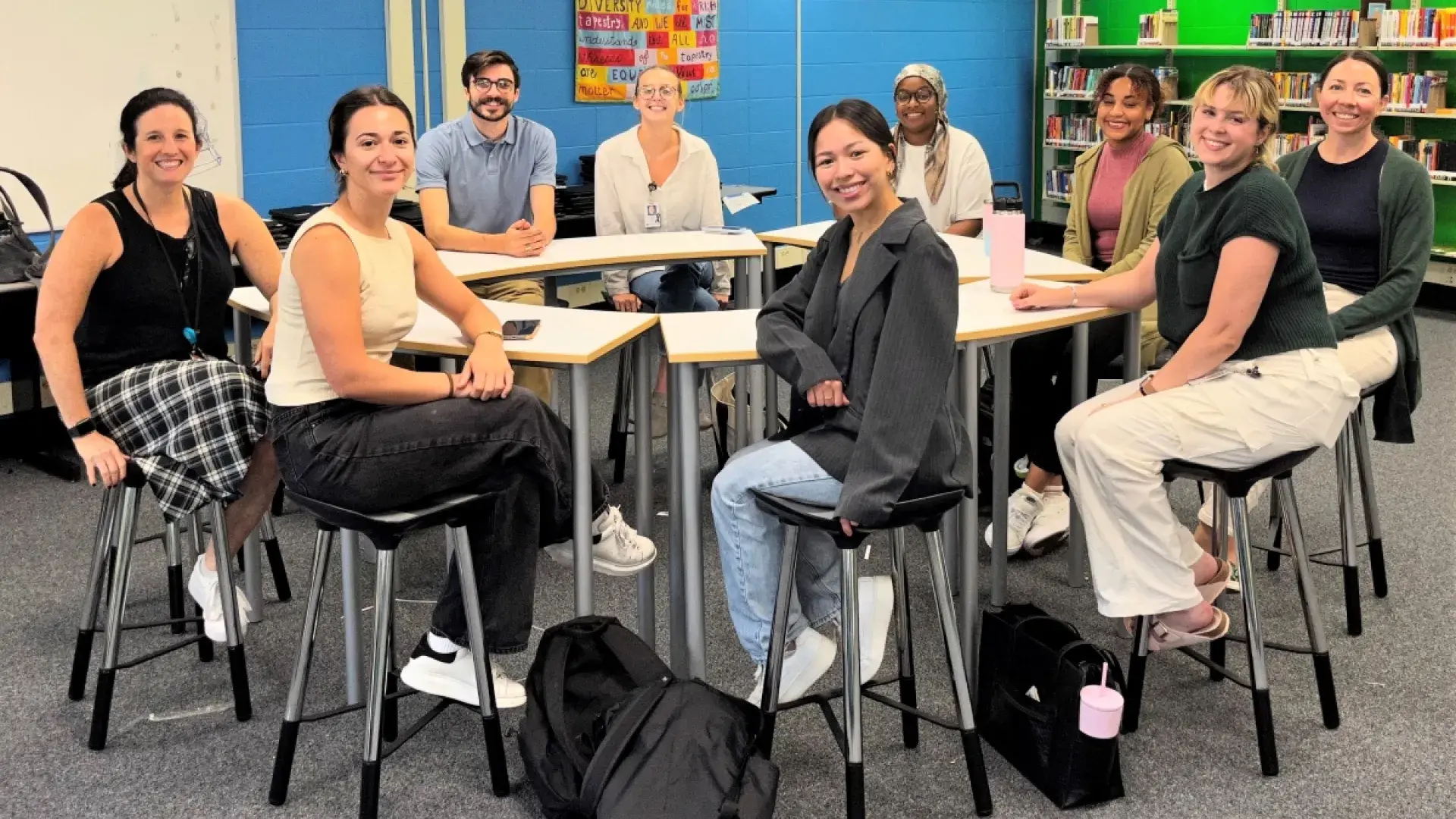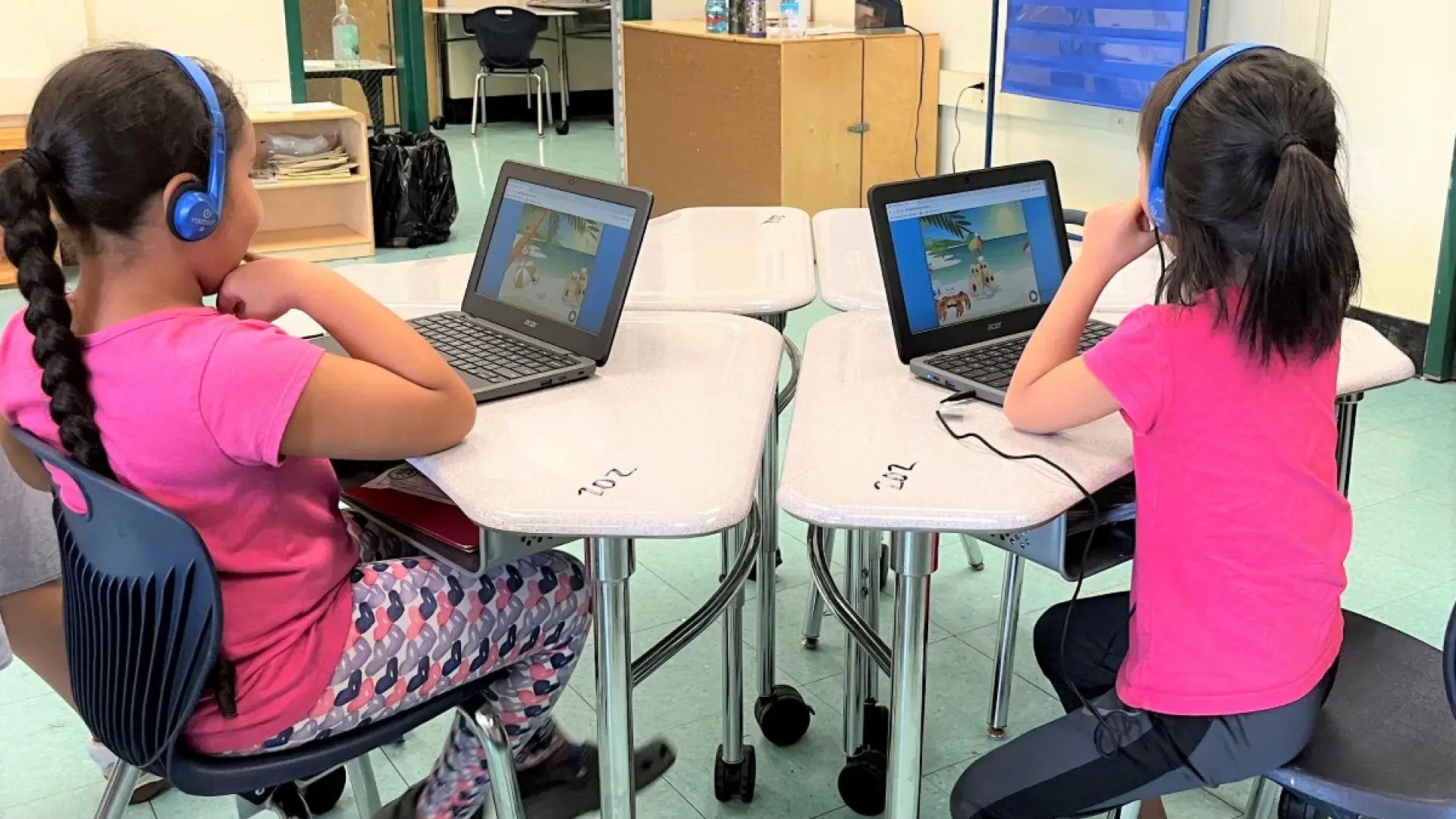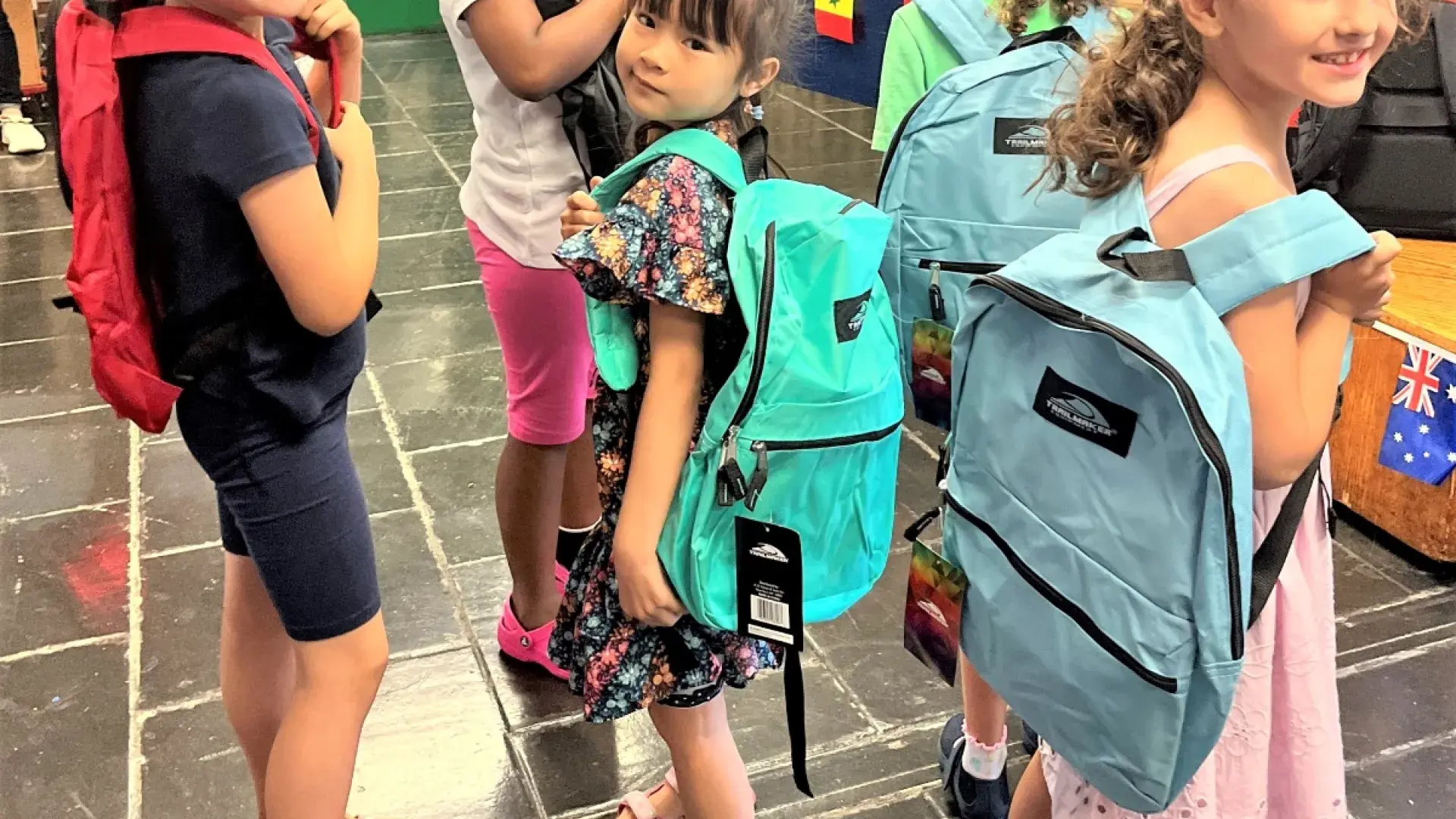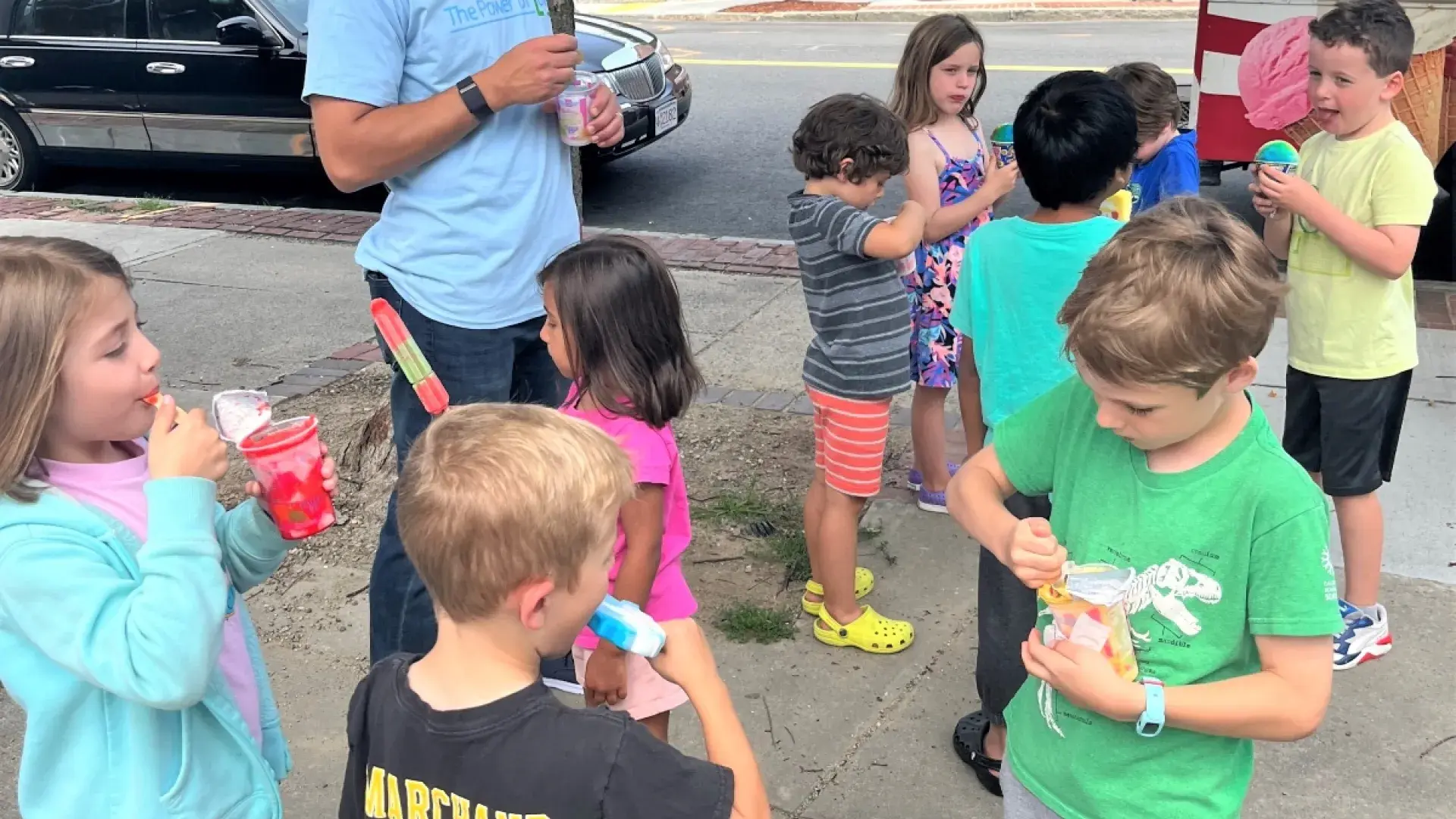
Researcher Dr. Joanna Christodoulou, thanks to a grant from accounting firm RSM, tripled the number of Charlestown elementary school students helped with reading and academic skills by the SPLASH program.
As the school year begins this week, more than 150 pupils who attend two Charlestown public schools will return to the classroom with freshly honed reading skills and better prepared to succeed in their new grade.
Their improvement comes from MGH Institute researcher Joanna Christodoulou’s lab members, a team of 19 graduate students in the Master of Science in Speech-Language Pathology, and five supervisors from the Institute as well as the Boston Public Schools who taught reading and literacy skills to pupils in grades K-6 from the Harvard-Kent and Warren-Prescott elementary schools for five weeks this summer.
This year’s program was supported in large part by the Charlestown office of the national accounting firm RSM, which earlier this year gave Dr. Christodoulou a three-year, $300,000 grant to expand the summer literacy program. Just 50 pupils participated each summer during its first five years.
“This grant allowed us to triple our impact immediately, which was amazing given that the goal was to double enrollment over three years,” said Christodoulou, an associate professor of communication sciences and disorders who also is director of the Brain, Education, and Mind (BEAM) Lab.
“There’s such a need to foster reading and related skills over the summer months," she added. "RSM’s support allowed us to scale up on multiple fronts including tripling the number of elementary school students we reached and the number of MGH Institute graduate students who gained valuable experiences that count toward their clinical certification, as well as the multiple classroom educators who were provided instructional support for literacy-based activities.”
The summer program was originally launched with funding from a Boston Public Schools Summer School grant as well as with support from the CSD department and the BEAM Lab.
The initiative counters the “summer slump,” when students often have less access to literacy experiences and resources and often a lag in their reading progress. This program delivered over 75 hours of literacy instruction to each of the attendees, many of whom are at-risk readers. It also reduced a waiting list that continued to grow each year as word got out about the program’s effectiveness and engaging curricula.
The summer slump in reading has been quantified as 62% to 73% of students losing ground in reading, which provides a prime opportunity for effective and supportive summer opportunities like Christodoulou’s summer partnership with the two Boston public schools.
